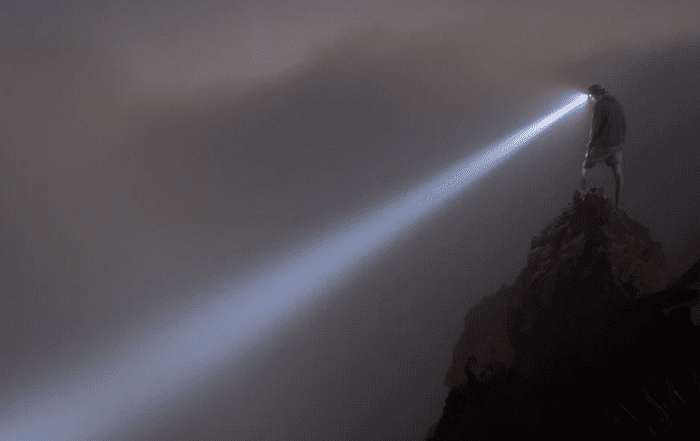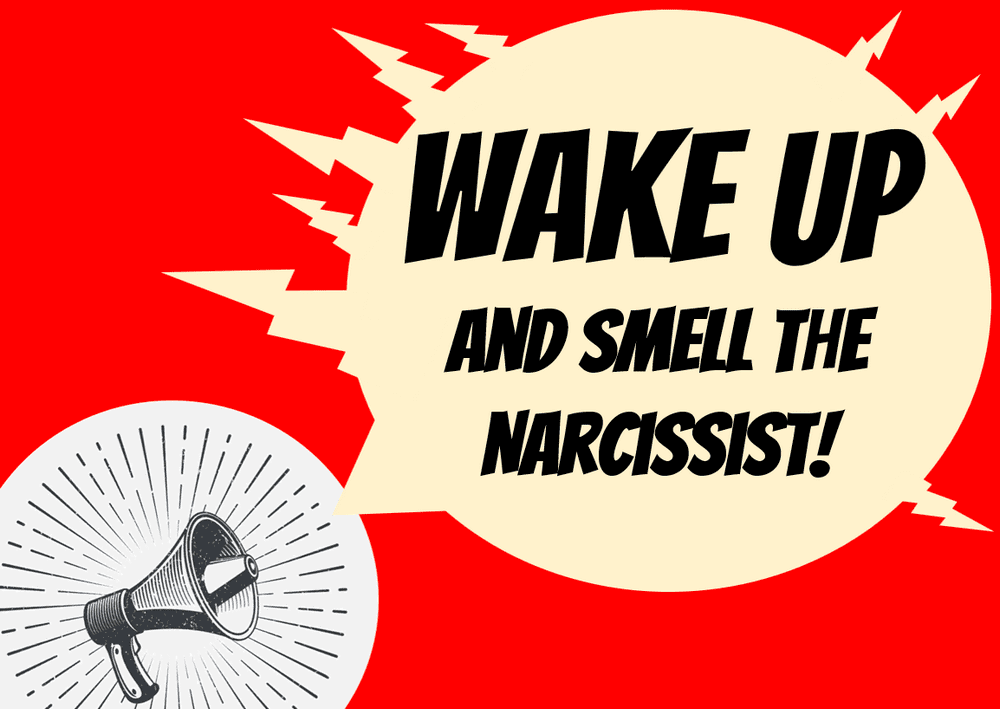Part Two
(Read Part One here)
Figuring out the root cause for what’s keeping you awake at night is the first step toward starting to reclaim your sanity, especially as you realize the problem is surprisingly common.
When we posted the question, “How did you discover your partner was a narcissist?” on Quora, the responses were overwhelming. Stories from the trenches can be comforting, because most of us can relate (and this is exactly how we also started figuring it out!).
Below is a list of a few common toxic behaviors, and how searching these terms on Google was, for many, the first step toward discovering that their partners were narcissists.
DENIAL
Often, when in the midst of the relationship, we are too close to see the toxic. This is called denial, and we may refuse to believe something is untrue. In Patricia Powers’ experience, “If you’re involved with one of these narcissistic creatures, you will never believe anything that anyone has negative to say about them.” Her own daughter tried to tell her that her relationship was toxic, saying, “In your eyes, this guy can do no wrong.”
Sound familiar?
Patricia said that the day did come when little by little, she started to see what was happening, and realized that “actually, my gut was trying to tell me all along…So if something doesn’t feel right, you need to take heed.”
IGNORING RED FLAGS AND QUICK INTIMACY
Paying attention to one’s gut is crucial.
Gale Hutchinson says that her ex told her in their first week of dating that “years ago he was paid to scare people into paying money they borrowed from the mafia. He would sneak into people’s houses and place a knife next to their head. I believed him and figured that it was decades ago so I shouldn’t judge him.” She later discovered that was a lie. He also sent a married woman he worked with love letters at the same time he was dating her, which she ignored along with his claims that he had “hundreds of exes.”
She found letters where he “used the exact same words in which he wooed me. I was given the same nickname as all his other exes. I was given a crystal rose as a token of his love for me. I found dozens of those roses in his house.” He also asked her to marry him on their first date, and wanted her to move in within days of meeting, another common behavior with toxic people, who often rush intimacy at the very beginning of a relationship.
Stuart Armstrong’s ex “started oversharing disturbing bits of her private life with me although we barely knew each other.” This is another unusual but prevalent behavior among toxic people.
My own ex’s party trick was to find a person within minutes with whom he could swap childhood abuse stories with, which always made me (and my friends) extremely uncomfortable.
Another thing we hear all the time and several people have cited as the clue that led them to wake up to the fact that they were with narcissists is complete disdain for boundaries. Whether physical, like personal space, or emotional, like not wanting to discuss certain topics, narcissists love to violate boundaries.
Gale’s last straw before breaking off the relationship was when her ex made sexual advances at her twelve year old sister. That’s when she absolutely knew she couldn’t trust him. She warns, “Don’t overlook these… important red flags. I truly feel I would have killed myself if I stayed with him and married him.”
CONTROL
Lyndsey Rullman’s partner would actually clock the movements of her daily routine. “I felt like I had a stopwatch hanging over my head at all times. ‘Work is 6 miles from the house, there is no reason in the world you should take longer than 10 minutes to get home.’ And if I was late… I was cheating or being a whore (I never cheated but of course he did… so many times I lost count).”
Abusers will often accuse their partners of the very behaviors they themselves are guilty of (“projection.”)
Stuart Armstrong’s ex-girlfriend always believed that she did everything better than everybody else, including washing the dishes. “She would for instance spend great lengths of time showing me how to ‘correctly’ wash a mug for instance. Like if washing a mug was something utterly complicated. A mug! Same with cleaning the floor, on way to dress, etc. She’s just the best at it. A perfect ‘queen’.”
Sooooo familiar…
LYING
Lynette, like both Chris and me, only learned that her partner was a narcissist after they were done.
“I thought I was in a relationship (trapped) with an extremely emotional, controlling man with low self esteem, etc. I thought that he had a really big heart and that his sensitivity and moodiness (and everything more awful) were side effects.”
He’d claimed that he gave all the money he earned to his parents, volunteered at a senior’s home as a teenager, that he was close to his family, and that he’d even saved a few lives, she says, “all designed to make him appear in a certain light.” She reflected back on how every single day was “filled with lies,” and that she “had simply believed most of what he had told me about himself and those stories were what I was basing his big-heartedness on, not any of his actions!”
Is this topic front and center for you right now? BTGO has a FREE interactive workshop that goes far beyond what we cover in this post. Learn more.
MAJOR IMBALANCE IN THE RELATIONSHIP
Peggy Tierney admitted to also ignoring a lot of red flags, but what really pushed her over the edge was the discrepancy in the relationship, specifically “when his needs were always met and pretty much none of mine were. I knew that I was putting more love and effort into the relationship than he was pretty quickly, but the amount of effort I was putting into his needs when mine were ignored, it was not something I could keep doing.”
THE DISCARD
Perhaps one of the most stunning clues to understanding narcissism occurs after the relationship has ended, when one is the victim of something called the discard, or immediate breakup for no apparent reason. (See our recent article on the topic, Breaking Up and the Discard: How a Narcissist Acts at the End of a Relationship).
Patricia Powers was completely supporting her ex financially, despite his draining her resources each month. When she could no longer continue, and told him as much, she was completely blindsided.
“I was discarded the next day, via text: ‘Thanks for helping me pay my rent, when I needed it, it’s all good though, have a good life.’
Wow, really? I… never, ever saw that coming.”
She initially went no contact, but curiosity got the best of her.
“I ended up calling… [and] the mask was off. The guy on the phone I had never met, literally hateful, degrading, resentful. He hung up once, ..the second time… he said he was done talking to me. A week later I got a text… he needed $800 to fix his car… that one wasn’t even worth a response.”
Elle Kay said her ex broke up with her “because I laughed at a joke at a party that he didn’t find funny,” and “moved out of our home and across the country with 24 hours notice.”
In hindsight, she did remember several red flags, but, “When he told me he was leaving me the very NEXT day… out of the blue… for no good reason at all… I remember taking a deep breath, looking at his dead, cold eyes and thinking to myself, “Oh my God, you ARE a narc!”’
GOOGLING BEHAVIORS
Countless people arrive at Google at their wit’s end.
After Jude Such became ill with anxiety after an inexplicably long silent treatment by her ex, she googled “compulsive liar” and within a year, figured out how perfectly he fit into the description of someone with narcissistic personality disorder.
Rose Ann survived 31 years with a covert narcissist, and asked the question, “What type of person blames the other for exactly what they are guilty of? To my dismay, the answers sent me to a variety of websites that explained the disorders of psychopath; narcissist and sociopath and I proceeded to go to the toilet and throw up.
“I had spent over 30 years with such a person always believing something would change. To find out they were incapable of true love was the worst betrayal of my life. I then began buying books and doing further research to find that my life’s story was written inside them. It was devastating.”
Jason Stephenson, who lived through an eight year relationship with a narcissist, “…knew things were not right from almost the beginning. I couldn’t ever put my finger on what was wrong, but my body was telling me the whole time. I went through lots of depression, anxiety, and other mental health issues. It was screaming at me to get out!”
“But, I had a son with her, so I was terrified to leave for fear of what she might do. It eventually got to the point where I started searching the internet for symptoms I was seeing with her, I started searching family situations that were similar to hers, and found the word narcissist! That led to more and more searching and reading and it all fit like a glove.”
Our very own Chris was with a severe malignant narcissist for more than a decade before it dawned on him.
“I had known for many years that she tended to project her own negative traits onto others. That’s very common with narcissists, but it would be a long time before I realized that. In the wake of her departure, she called me a narcissist and a psychopath a few times. Knowing of her tendency to project, I looked up narcissism and found an article that made my jaw drop.”
“Like most victims of narcissistic abuse, I had felt totally alone and never imagined the problem in my relationship actually had a name… That moment when I read that first article was a life-changer!”
Stuart Armstrong agrees. “Her sudden mood changes with extreme anger, verbal, emotional and psychological abuse with occasional physical abuse led me to think that was something more serious but I couldn’t put a name on it. A name is such a powerful thing…”
HEALING
Labels are just the very beginning of understanding, but what relief to finally stop blaming yourself, and move toward making rational choices.
Neal Ryder was only able to start with some distance from his narcissistic relationship, during a period while taking care of his sister in hospice.
“Continued research eventually led to looking at Cluster B personality disorders. It took months to get from Point A to Point B (just the Cluster B). Not being a mental health professional (she was) I wasn’t sure. Labels constrict, so I said nothing while continuing to observe and research.”
“It wasn’t until after we had separated, (I had) discovered Quora, and learned from professionals (thank you) that I realized my suspicions were accurate. Up until that time, I knew what I knew and it was enough to leave. Understanding, to the extent that I can, the subtleties of NPD has been invaluable in healing from that relationship.”
Queen, who went through all phases of a narcissistic relationship, agrees: “He made me feel unworthy to an extent that I hated myself. But after knowing his disorder, it helped me to understand why I have been through all this inhumanity.”
Her advice? “A narcissist always wears a mask and at some point in between, the mask does slip off. Trust your instinct and be aware. Don’t let anyone else take that spark from you. Educate yourself more on this disorder – it will help you recover faster.”
This article is part two of a two-part series. Click here for Part One of “How Do People Realize Their Partners are Narcissists?”
Editor’s note: If you’re just waking up to the real cause of the issues in your relationship, and you’d like to know more, consider viewing our FREE interactive workshop, Wake Up & Smell the Narcissist: Reviewing the Toxic Relationship Quiz, which is available in BTGO’s Sanity School now.






